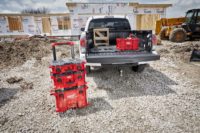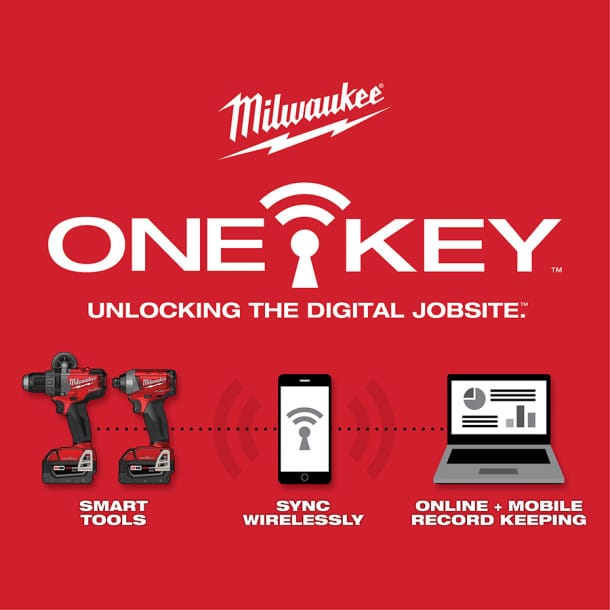Ask any plumber (or contractor for that matter) about their worst nightmare, and tool theft will likely come up in the discussion. It’s not just the monetary value of the tools themselves – some of which will be ensured and can always be replaced – but the immediate impact on ability to work and the Read more
theft

Ask any plumber (or contractor for that matter) about their worst nightmare, and tool theft will likely come up in the discussion. It’s not just the monetary value of the tools themselves – some of which will be ensured and can always be replaced – but the immediate impact on ability to work and the frustration that your general flow of managing jobs is ruined which makes this experience feel utterly awful for most.
A stolen van full of equipment can mean weeks of lost income, frustrated customers, and the exhausting process of replacing specialized tools that took years to accumulate. Some may even hold sentimental value to you, and no, that’s not a silly way to think about the tools you’ve used for years and have put a roof over your head and fed your children, sometimes even for decades.
To be anecdotal, the problem seems to be getting worse too. With tools becoming more expensive and sophisticated, it seems like they’re becoming more and more attractive targets for theft. Almost every plumber and other trades worker you will meet has a story about arriving at their van one morning to find it emptied overnight, and if not, they likely know someone else who does. Some have even experienced theft while on the job site itself.

Have A Robust Storage Plan
Throwing all your tools in the back of the van is necessary as you go from point A to B, but always assume someone can get in there no matter what alarms you have. Today’s storage requires more thought, and some plumbers use heavy-duty tool vaults bolted directly to their vehicle frame, while others have started using mobile storage solutions similar to the gantry cranes and secure containers you might see on construction sites, especially plumbing businesses that run a fleet and need to pack trucks.
That way you don’t just protect tools but also organize them in a way that makes theft more difficult without making daily access frustrating. Even something as simple as using different storage locations for various tools, rather than keeping everything in one easily accessible place, can help reduce losses if someone does break in. It’s annoying we have to do this, but it does mean you don’t have to worry overnight.
Technology & Tracking
Luckily, if the thieves are using more tools to get into yours, you get to enjoy the benefits of tech too. GPS trackers have become smaller and more affordable, making them practical for protecting larger tools and equipment – an airtag in a toolbox might save you thousands if you know where it is or where it’s been taken to (though we can’t recommend following thieves of course, always care for your personal safety first).
In addition, some newer power tools even come with built-in tracking capabilities or can be disabled remotely if stolen. Security cameras in work vehicles aren’t uncommon anymore either – they’re small enough to be hard to notice while providing valuable evidence if theft occurs. Perhaps the police can be more motivated when given that kind of info. Even simple motion-activated lights and alarms can make a nice difference, especially when tools need to be left in a vehicle overnight. At the very least you’ll scare the thief.
Site Security Practices
It’s weird to think of such brazen acts, but many thefts happen right on the job site, often when workers are distracted or during breaks. Or, you know, working hard and not stealing other’s belongings!
This is where discipline works best. Don’t leave tools scattered around the work area, as keeping them organized and within sight helps prevent opportunistic theft. When working on larger projects, some plumbers coordinate with other tradies they trust to create secure storage areas using existing site provisions. Having a system for tracking tools throughout the day helps notice if something goes missing sooner rather than later too, like doing spot checks three times a day. And, of course, only work with people you can trust.
Insurance & Documentation
While insurance might not prevent theft at all, having the right coverage can make recovery much easier and less of an emotional and financial shock. Standard vehicle insurance often doesn’t cover tools stolen from a van, so specific equipment coverage is mostly required.
Keeping detailed records of your tools, including serial numbers and photographs that are updated every few months, can help both with insurance claims and recovery if stolen items show up at pawn shops or online marketplaces too – sometimes the police can track an item that way. Some plumbers even mark their tools with unique identifiers that make them easier to recognize if recovered, like a signature in permanent ink or just initials.
With this advice, we hope you can more easily avoid tool theft, hopefully never experiencing it on a personal level.
